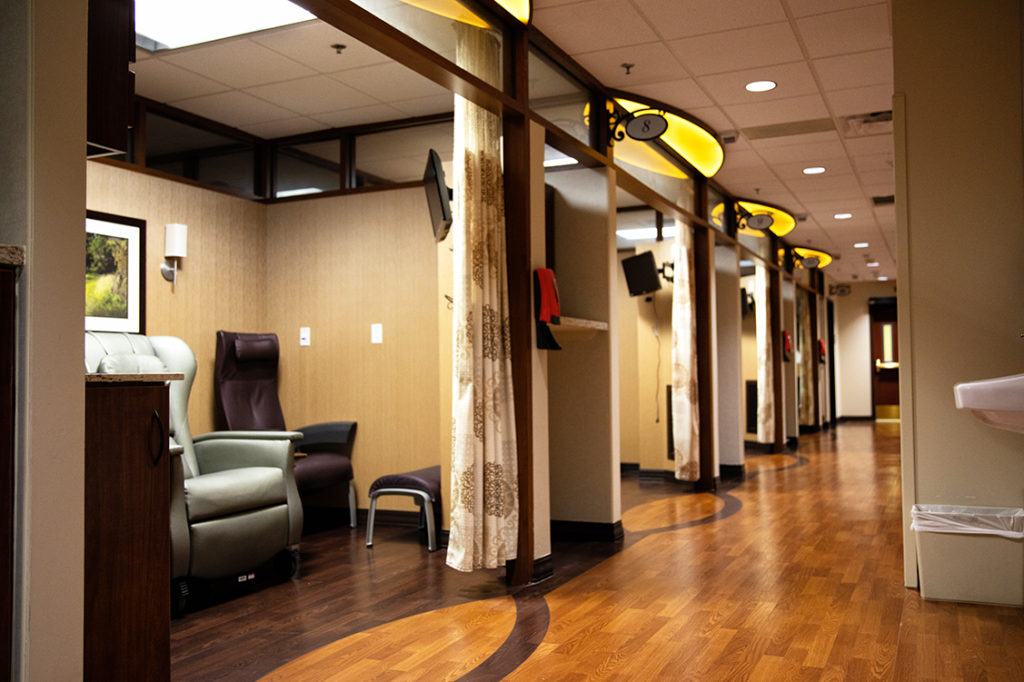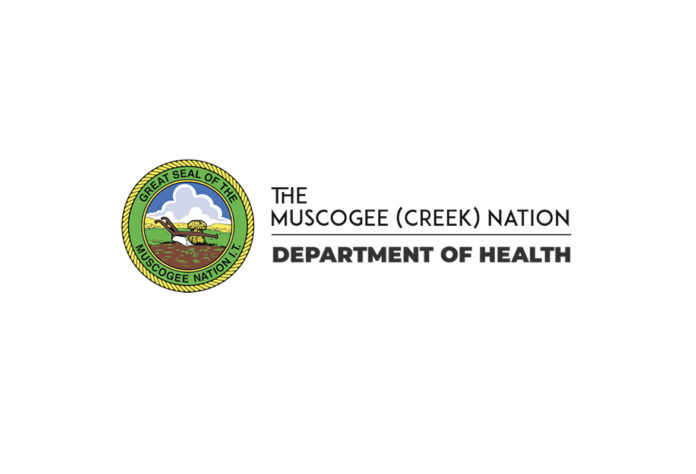OKMULGEE, OK – The Muscogee Nation has announced the opening of a 65-suite, monoclonal antibody infusion center. The infusion center, located inside the Nation’s newest Tulsa-based hospital, Council Oak, will assist local health systems and providers in the fight against COVID-19. This public health initiative is a collaborative partnership with the Oklahoma State Department of Health (OSDH), Indian Health Service (IHS), and the Department of Health and Human Services (HHS) and will treat both Native and non-Native patients.
Monoclonal antibodies are laboratory-made proteins that are designed to target a specific virus or bacteria. In the case of COVID-19, the antibodies attach to the virus and block it from entering human cells. The monoclonal antibody treatment is done through an intravenous infusion and should be administered within 10 days of developing COVID-19 symptoms.

“Research is showing monoclonal antibody infusions are extremely effective in preventing COVID-19 symptoms from worsening,” said Shawn Terry, Secretary of Health for the Muscogee Nation. “It is our hope this regional infusion center will help alleviate the current strain on our hospitals by preventing additional severe cases of COVID-19. From the onset of this pandemic, the Muscogee Nation has been focused on protecting our people and all Oklahomans. This partnership is one more way we can offer our assistance in the fight against COVID.”
“We appreciate the Muscogee Nation and their commitment to finding solutions that will help protect the health and safety of all Oklahomans,” said Dr. Lance Frye, State Commissioner of Health. “While this treatment has been deployed in some of our public health entities across the state, we look forward to expanding its availability through this partnership.”
Infusions are by appointment only. Current hours of operation for the infusion center are Monday through Friday from 9am – 5pm. Total infusion time takes approximately two hours, including one hour of observation following the treatment. Patients 12 and older are eligible to receive the infusion, but certain criteria must be met if under the age of 65. Individuals 65 and older are identified as high risk and should qualify for the treatment.














































